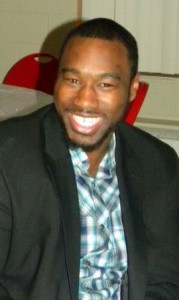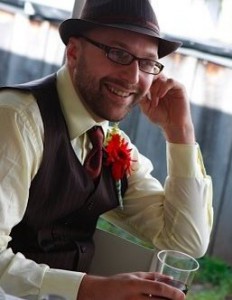Public housing was a common feature in urban areas across America. Many poor people that lived in these large, high-rise developments called these places home. Still, in terms of housing assistance programs, many issues concerning mobility are still unanswered.  Prentiss Dantzler, a doctoral candidate in the public affairs program, seeks to understand the dynamics of public housing and mobility. Under the supervision of Paul Jargowsky, Ph.D. and the support of the Center for Urban Research and Education (CURE), Dantzler has just received approval from the Institute for Social Research at the University of Michigan-Ann Arbor for access to restricted data files from the Panel Survey of Income Dynamics (PSID). Dantzler will use the PSID in his dissertation to analyze individual characteristics, local economic and housing conditions, and neighborhood social environments in relation to public housing exits. Dantzler is currently attending a summer research workshop at the Interuniversity Consortium for Political and Social Research at the University of Michigan supported through the Department of Public Policy and Administration at Rutgers-Camden.
Prentiss Dantzler, a doctoral candidate in the public affairs program, seeks to understand the dynamics of public housing and mobility. Under the supervision of Paul Jargowsky, Ph.D. and the support of the Center for Urban Research and Education (CURE), Dantzler has just received approval from the Institute for Social Research at the University of Michigan-Ann Arbor for access to restricted data files from the Panel Survey of Income Dynamics (PSID). Dantzler will use the PSID in his dissertation to analyze individual characteristics, local economic and housing conditions, and neighborhood social environments in relation to public housing exits. Dantzler is currently attending a summer research workshop at the Interuniversity Consortium for Political and Social Research at the University of Michigan supported through the Department of Public Policy and Administration at Rutgers-Camden.
Category: News
Center director Paul Jargowsky quoted in ALJAZEERA article on housing segregation
More than 25 percent of Americans lived in a poverty area in 2012, an increase from 18 percent a decade earlier
Fellowship Opportunity on U.S. Social & Behavioral Sciences Team
Job Title: Fellow, U.S. Social and Behavioral Sciences Team
Department: General Services Administration
Agency: Office of Government-wide Policy, Performance Improvement Council
Deadline: Applications will be reviewed on a rolling basis until filled
The U.S. Social and Behavioral Sciences Team (SBST) seeks exceptionally qualified individuals to serve as Fellows for 2014–2015. Individuals who can secure continued financial support from their home institution or other outside funding are especially encouraged to apply.
JOB SUMMARY:
The SBST helps federal agencies increase the efficiency and efficacy of their programs and policies, by harnessing research methods and findings from the social and behavioral sciences. The team works closely with agencies across the federal government, thinking creatively about how to translate social and behavioral science insights into concrete interventions that are likely to improve federal outcomes and designing rigorous field trials to test the impact of these recommendations.
Please visit: SBST – Fellow Solicitation 2014 for the complete application.
3 Rutgers-Camden Graduate Students Designing an Innovative Pilot Project to Address the Foreclosure Crisis in Camden County

In 2009, the United States experienced arguably its most depressive economic period since the Great Depression. The U.S. housing bubble had burst and many individuals were forced to foreclose on their properties in their last desperate attempt to shed debt and cut costs. The effects of this economic downturn still have an effect today as many areas are still facing a rising number of foreclosures. The same can be said about local municipalities in South Jersey. However, evolving from the work of a few students from Rutgers – Camden, a new method of transforming these vacant properties into homes for potential buyers is being formed.

Three graduate students from the Department of Public Policy and Administration here at Rutgers – Camden are spearheading a pilot program under the direction of Mayor Jim Maley of Collingswood, New Jersey. Zachary Wood and Prentiss Dantzler, both Doctoral Candidates in the Public Affairs – Community Development program, and Jeanette Holdbrook, an MPA student in the Community Development track, are currently designing a pilot program to kickstart bank-owned vacant properties that have been stuck in the foreclosure process back onto the market for potential buyers. Currently, these students are working with an extensive list of vacant properties from local municipalities including Collingswood, Pennsauken, Audubon, Oaklyn, Haddonfield, Haddon Township, and the Fairview section of Camden, NJ. They hope to have the pilot program designed by the end of the summer.

By collaborating with different municipalities, this team hopes to merge their academic experiences with practical strategic actions to enact change in these local communities. While in its early stages, this project has attracted a lot of attention from local media sources as well as housing affiliated organizations. The team has high hopes that this work may serve as a model for other areas nationwide to combat the growth of vacant, bank-owned properties. “What’s most exciting about this project is the collaboration of a diverse group of local leaders, realizing a common goal,” said Dantzler and Wood about the project. “We simply don’t see this kind of partnership across borders much, but that is exactly what makes this project unique, and we think there may actually be potential for the elusive win-win situation here.”
RSF blog reviews center director Paul Jargowsky’s chapter in Choosing Homes, Choosing Schools (2014)
Read about Paul’s work in the Russel Sage Foundation’s blog post:
Neighborhood Segregation and the Concentration of Poverty
A new book from the Foundation, Choosing Homes, Choosing Schools (2014), examines the complex relationships between schools, neighborhood social networks, and larger patterns of inequality in order to offer new perspectives on the way that residential segregation continues to affect access to education.
In his chapter, “Segregation, Neighborhoods, and Schools,” public policy scholar Paul Jargowsky (Rutgers University-Camden) traces shifts in residential segregation over the last four decades, along both class and racial lines. He assesses the extent to which race drives class segregation, and vice versa, and finds that though a small amount of racial segregation is due to poverty status—and a larger amount of segregation by class is due to race—both largely work independently of each other to shape residential segregation.
To read more, please visit: https://www.russellsage.org/blog/neighborhood-segregation-and-concentration-poverty
